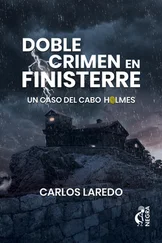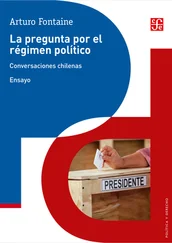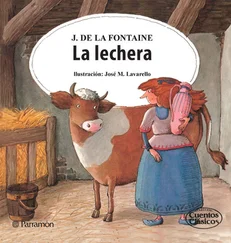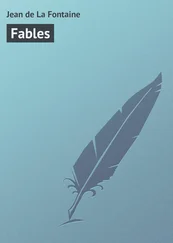Do you want to believe me? Because we’re here in this hospice home in Ersta, Stockholm, and if you don’t want to, I’m not about to try to convince you. I have no way to. As for me, I don’t give a shit about the truth. Am I telling the truth when I tell you I don’t give a shit about the truth? It’s my story, after all. But does such a thing exist? As I talk to you, I look at you and calibrate your reactions. Everything I’m telling you is formulated for you. I would be saying this in a different way to Roberto, in another tone, with other things emphasized and other omissions. Understand? What you want to do with my story, and above all your gestures — the way you suddenly raise your eyebrows or twist your mouth or interlace your fingers — I assimilate them, and it all gives shape and content to what I say and don’t say. The same thing happens in an interrogation. Who is asking, what they ask, and how they do it all gives shape to what you say and what you hide.
I didn’t find out about the attack itself, its objective, the date and time, until half an hour before we left. Macha summoned us that night to the lot at Central, he ordered us to come armed for a mission. I remember that Pancha, when she got there, took out her little bottle of Christian Dior and perfumed herself. I think she did it to piss me off, and it worked. I felt bad. Once we were all in the parking lot, Macha told us that Operation “Night of the Wild Boar” was about to commence, and he explained what we were going to do, spreading out the blueprints of the house. He took his precautions. Then? Do you want me to tell you the story, or should I simplify things and get to the point? You know, in reality all this happens very quickly and later it’s told very slowly. You can’t imagine everything that can fit in a minute.
I heard Indio Galdámez walking on the roof. Why Galdámez? Weren’t Mono Lepe and Pancha Ortiz the ones who were supposed to cover the roof? He must have climbed up through the hole left by the shattered skylight. His steps resounded on the zinc shingles. The ancient old lady tried to say something. I knew from the movement of her head and the contortion of her mouth obstructed by the piece of black cloth. Iris kept her at gunpoint. A burst of machine-gun fire pierced my ears. There was a dull noise. I went over to the window and looked through the opening between the curtains. A motor running. Iris got close to the edge of the window. A white Volkswagen van that I recognized was backing up over the driveway at full speed. It fit its rear against a doorway to the house.
“Careful!” Iris shouted at me, “Careful!”
She pushed me back, opened the curtain, and with one burst of fire she shattered the window. She dragged the old woman over to the window, holding the gun to her head.
“Give me some light! Shine the flashlight on me!”
Bone’s mother was struggling, she was desperate and moaning, but Iris, skinny as she was, had her hostage well under control. I obeyed. Iris was shouting that she was going to kill her, she was going to kill Bone’s mother if they didn’t throw down their weapons and surrender immediately. I think she gave them a time limit, I think she started counting to seven. A man ran across, hugging the wall of the yard, and opened the van doors. Iris counted louder and louder. No one heard her. You don’t see that in movies, do you?
And of course, the gate was starting to open now. It obeyed a remote control order. You could see the light from the street. My heart gave a leap of joy: they were getting away. Why? I’m contradicting myself. But that was how I felt at that moment. I heard Pancha on the radio, requesting backup from Central. She must have been close to the broken skylight.
I thought: it’s her. And I had no doubt about it. She arrived first, in time to warn someone as soon as she got there, some contact in Red Ax. It was before Mono Lepe met up with her on the roof. Of course, they’d only had time to prepare their escape, not to carry it out. The mother they had to get dressed, was that what slowed them down? Because they didn’t want to leave her behind? And who was Pancha’s connection in Red Ax? Since when? Had it been Pancha, then, who had given us the address of Macha’s lover, which turned out to be bad information and had cost the life of some unimportant agent? And was Pancha the source of the address — correct, this time — of the kindergarten Cristóbal went to? How much did they know about me? Was it her information, incomplete as it was, that had caused the Spartan’s reticence with me? And how much had she wheedled out of Flaco about me? Did she have help in Central, another mole?
And then I thought: If there’s anyone who’s really suspicious here, who would have warned Bone about that night’s attack, it’s me. Not Pancha. Obviously: they all must be thinking it that very instant.
A crash made me turn around. A cornice of the building had fallen, bringing a gutter along with it, and it landed right in the space between the house and the Volkswagen. The van gave a jump and lurched forward, tires squealing, toward the half-open gate. But it got there too soon and collided with the black metal that still hadn’t receded. Iris threw the old woman onto the bed, ordered me to guard her, changed her clip, and, crouching down, started to fire shot after shot. She wanted to hit a tire, but she didn’t have the angle. The same thing must be happening to them on the roof. Was that Mono Lepe down there, those remains of a fallen human animal, the open and exposed flesh immobilized in an unnatural position?
“Why aren’t reinforcements here yet?” Iris yelled.
Her bullets left cracks in the back windows of the van but didn’t destroy them, or they rebounded, maybe, inside its bodywork.
“It’s bulletproof, you stupid fucking idiot!” she told me when I asked.
The Volkswagen was still stopped and two shadows were approaching it, keeping close to the wall of the house. Finally, the gate was open. But the van didn’t leave. The sudden silence surprised me. Iris lowered her CZ. The shadows stayed immobile against the walls. No one dared take a step. Then the driver’s side door opened and an inert body was shoved out. The Volkswagen started moving. The bullets shattered that tense silence. They returned fire. I saw one, two men running. Iris shoved me away from the window.
“Watch her!” she ordered me and went on shooting, unhurriedly.
I made the woman as comfortable on her bed as possible without lowering my gun. I tried to think back. In my life as a clandestine fighter I’d had to maintain some M16A1 caliber 5.56 weapons. Since they were too long—986 millimeters — sometimes their stocks were shortened. They were kept in bags sealed with tape that we stuck into a drum of Motrex oil. We hid the drum in a hiding place in a wall, behind a bookshelf, in a safe house. It was an M16 like those that were now shredding the night. A fighter from Red Ax. I was sure of it. The clatter didn’t let up, punctuated by those short, suctioning silences. And I kept trying to imagine what the hell was happening down there in the yard.
Iris, haggard, sat down on the bed without looking at me. We could hear the murmur of people talking. The bullets had stopped suddenly. We kept quiet. How good, how blessed that silence was.
“You know?” Iris says to me, suddenly calm. “There were two of them, two pit bulls. How could they not give us that information?”
“They had them in the house next door,” I tell her. “That’s what I heard Indio say. They had a backup team there.”
“Those dogs attack without warning, silently. They were inches away from Macha.” She looked at me with cold eyes and a vague, feline smile: “I took them down at the last second.”
Читать дальше












